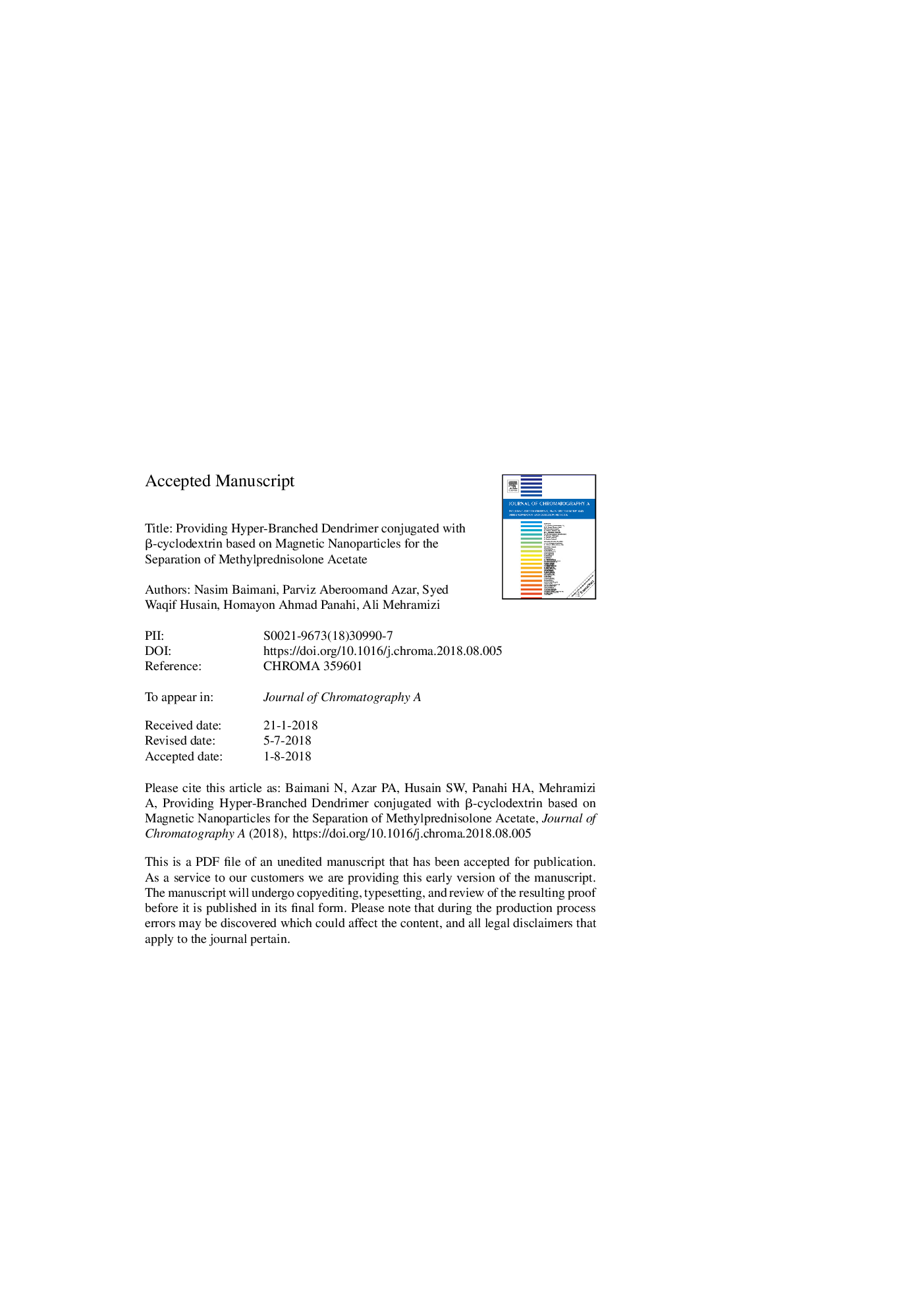| Article ID | Journal | Published Year | Pages | File Type |
|---|---|---|---|---|
| 10154456 | Journal of Chromatography A | 2018 | 29 Pages |
Abstract
This study introduced a developed approach for dendritic β-cyclodextrin (β-CD) in order to obtain high sorption capacity. Synthetic strategy exploits the reactivity between acrylic acid and allyl glycidyl ether for high-yielding assembly via grafting on to the magnetic nanoparticles that are modified using 3-mercaptopropyltrimethoxysilane for various building branches and host-guest molecules of β-CD. The methodology has been applied for the preparation of a series of β-CD conjugated magnetic nanoparticles with dendrimers as a nano-sorbent for the extraction of methylprednisolone acetate. This study allowed us to probe (i) the effects of the dendric-cyclodextrin architecture on the affinity of sorption capacity, (ii) the drug influence between the cyclodextrin core and the polyester dendrimer, and (iii) the result of sorbent formation for using the anti-inflammatory drug as a target guest into the ring of β-CD on biological extraction. It was found that the adsorption behavior could be fitted by the Langmuir adsorption isotherm model. The adsorption capacity of MPA is found to be 12.4 mgâgâ1 and indicated the homogeneous sites onto polymer grafted magnetite nano-sorbent surface. Our results confirm the high capability of this type of dendrimer-β-CD for drug extraction in biological fluids and pharmaceutical samples. This nano-sorbent assists the magnetic solid phase extraction technique represented in the high extraction yield (up to 97%) for methylprednisolone acetate in biological human fluids and pharmaceutical samples. Moreover, the achieved polymeric nano-sorbent of the reaction combination was facilitated by a magnetic field and reusability was performed without any notable loss in the sorbent activity.
Keywords
Related Topics
Physical Sciences and Engineering
Chemistry
Analytical Chemistry
Authors
Nasim Baimani, Parviz Aberoomand Azar, Syed Waqif Husain, Homayon Ahmad Panahi, Ali Mehramizi,
